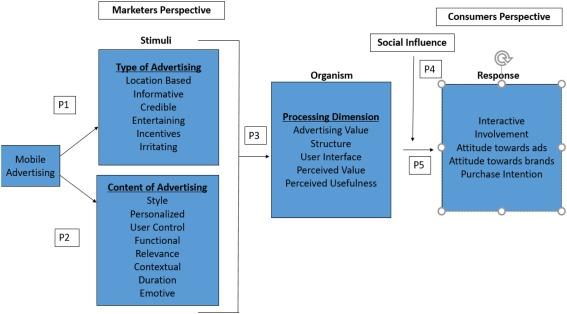Future-Proof Skills: Preparing Students for Jobs of Tomorrow

Introduction: Why Future-Proofing skills Matters
The world of work is changing at an amazing pace, driven by technology, automation, and globalization.Today’s students are preparing for jobs that might not even exist yet. To navigate this uncertain future, it’s essential to focus on future-proof skills that foster adaptability, continuous learning, and creative problem-solving. In this article, we’ll explore what it means to future-proof skills, why it’s critical for long-term career success, and how educators and parents can support students for the jobs of tomorrow.
What are Future-Proof skills?
Future-proof skills are versatile, adaptable abilities that remain valuable regardless of changing job markets or technological advancements. Rather of focusing solely on specific technical expertise, thes skills emphasize flexibility, critical thinking, and innovation—qualities that empower students to thrive in diverse and evolving career landscapes.
- Critical thinking and problem-solving
- Emotional intelligence and interpersonal skills
- Digital literacy
- Creativity and adaptability
- Collaboration and interaction
- Entrepreneurship and self-motivation
- Lifelong learning
The Changing Landscape of Jobs
According to the World Economic Forum’s Future of Jobs Report, automation and artificial intelligence could displace 85 million jobs by 2025, but these technologies will also create 97 million new roles. The key to securing meaningful employment lies in adapting to change and developing core competencies that align with future workforce needs.
“The future workforce requires a blend of technical expertise and human-centered soft skills.” – World Economic Forum, 2023
Essential Future-Proof Skills for Students
1. critical Thinking & Problem Solving
Analyzing details, evaluating evidence, and making decisions are vital skills for technology-driven workplaces. Encouraging students to tackle open-ended projects and brainstorm solutions prepares them for unpredictable scenarios.
2. Digital Literacy
Understanding digital tools, coding, and data analysis is imperative. Digital literacy now extends beyond basic computer skills to include cybersecurity awareness, online collaboration, and proficient use of new digital platforms.
3. Emotional Intelligence (EQ)
Empathy,self-awareness,and resilience help students navigate social dynamics,manage stress,and work effectively with diverse groups—traits highly sought in any future job.
4.Creativity & Adaptability
the ability to innovate, adapt to new situations, and think outside the box gives students a competitive edge in roles augmented by AI and machine learning.
5. Communication & collaboration
In a globalized world, clear communication and teamwork are more crucial than ever.These skills support success in both remote and in-person settings.
6.Lifelong Learning
With the half-life of skills rapidly shrinking, nurturing curiosity and a commitment to ongoing learning ensures students remain relevant as industries evolve.
Benefits of Developing Future-Proof Skills
- Increased Employability: Students equipped with future-proof skills are more attractive to employers across industries.
- Career Flexibility: Transferable abilities allow students to pivot between roles and sectors as needed.
- Enhanced Problem-Solving: Adaptable graduates are better prepared to tackle workplace challenges without relying on rigid job-specific skills.
- Personal Growth: Skills like self-awareness and emotional agility contribute to personal well-being and leadership capacity.
Practical Tips: How to Prepare Students for Jobs of Tomorrow
- Integrate Project-Based Learning
Assign open-ended problems and collaborative projects that foster creativity and real-world problem-solving.
- Prioritize Soft Skills
Incorporate group activities,debates,and presentations to enhance communication,negotiation,and leadership.
- Teach Digital Literacy
Encourage exploration of coding,digital research,and safe online practices from an early age.
- Promote Curiosity & Lifelong Learning
Offer opportunities for self-directed exploration, mentorship, and exposure to diverse subjects outside the core curriculum.
- Leverage Technology
Use digital learning platforms, virtual labs, and AI-powered tools to make learning more engaging, interactive, and accessible.
- Emphasize Growth Mindset
Encourage reflection on mistakes and celebrate continuous improvement rather than just outcomes.
Case Studies: Schools Fostering Future-Proof Skills
Case Study 1: Finland’s Education System
Finland’s globally renowned education model emphasizes holistic development, creativity, and collaboration. Rather than rote memorization or standardized tests, Finnish schools integrate cross-disciplinary projects that teach students to solve complex, real-world problems, equipping them for the future workforce.
Case Study 2: Singapore’s SkillsFuture Initiative
the government of Singapore has launched the SkillsFuture initiative, investing in continual skill upgrades for both students and working adults. The curriculum focuses on technological agility, analytical thinking, and lifelong learning, preparing citizens to adapt to industry shifts proactively.
First-Hand Experience: A Teacher’s Perspective
“In my classroom,future-proofing isn’t just about teaching facts,but about nurturing adaptability and creative thinking. When students work in teams to design solutions for local issues or build apps,I see them develop the confidence and resourcefulness they’ll need for tomorrow’s jobs.”
— Sarah J.,High School educator,Toronto
How Parents Can Support Future-Proof Learning
Parents play a vital role in fostering future-ready skills at home. Here are some actionable tips to help children develop these crucial abilities:
- Encourage curiosity by exploring new hobbies or asking open-ended questions about the world.
- foster independence by letting kids solve age-appropriate problems on their own.
- Model lifelong learning by pursuing your own interests or taking online courses together.
- Promote teamwork through family projects, sports, or volunteer opportunities.
The Role of EdTech in Developing Future-Proof Skills
Educational technology is a critical enabler. From interactive digital platforms to AI tutors and VR simulations, edtech tools make learning adaptive, personalized, and engaging, thus accelerating the acquisition of future-proof skills.Schools and parents should seek out platforms that promote collaboration, problem-solving, and critical thinking—not just rote memorization.
Conclusion: securing Success in the Future Workplace
The jobs of tomorrow will demand a dynamic blend of technical knowledge, social intelligence, and the willingness to constantly adapt. By focusing on future-proof skills today, educators and families empower students to navigate whatever the future holds. The result? Confident, adaptable, and innovative learners who are prepared to thrive—no matter how the world of work evolves.
Are you ready to help your students develop the skills for the jobs of the future? start today by integrating these strategies and watch them grow into future-ready leaders!

